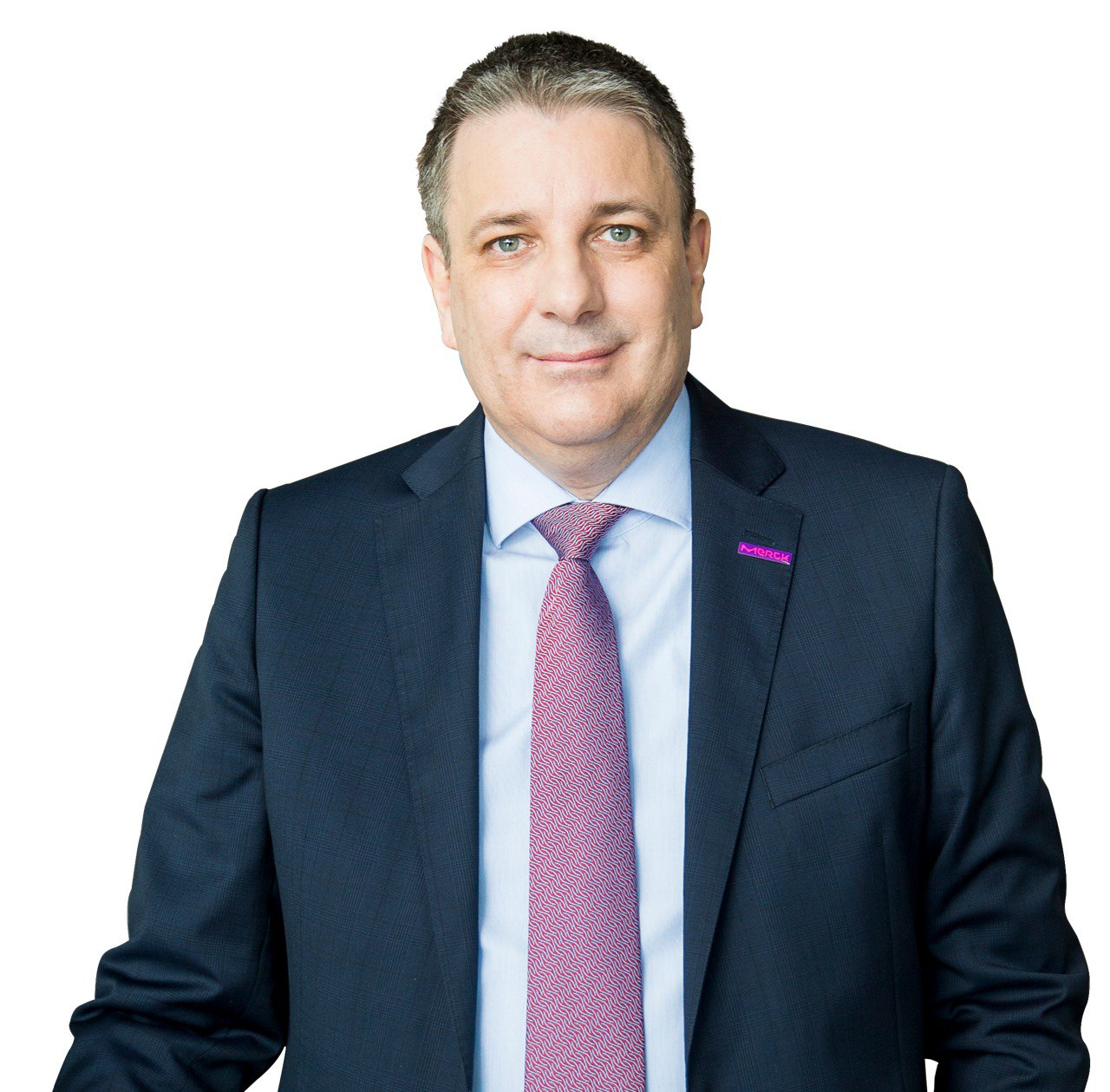[Herald Interview] ‘There will be always more demand for chips, displays’
Merck Electronics CEO calls going local key to success in Korea
By Jo He-rimPublished : Jan. 9, 2023 - 16:40

LAS VEGAS – The prolonged economic recession and inflation is drawing a grim outlook for semiconductor and display industries, even for top players such as South Korea’s Samsung and LG.
But Merck Electronics CEO Kai Beckmann says that companies will persist, as demand for chips and displays will continue to grow, in the long run.
“The electronics industry, ever since it developed, has had ups and downs. It is kind of a normal phenomenon in our industry. The good thing is that, after things get softer, they get better. Always,” Beckmann, who is also a member of the executive board of Merck Germany, said in an interview with The Korea Herald on Friday on the sidelines of the Consumer Electronics Show in Las Vegas.
“What we know is that there will always be more demand for semiconductors and displays in the long run. We have to simply accept this and our customers would also have to work with that,” he said, adding that keeping the cost structure flexible is a way to manage the situation.
Therefore, Merck Electronics, which supplies key materials for leading semiconductor producers and display makers, continues to make investments in South Korea to support its clients with high-tech materials.
Starting the new year, Merck announced the acquisition of M Chemical Inc., a chemical company affiliated with Korean semiconductor materials maker Mecaro. The acquisition is a renewal of its commitment to the Korean market, home to global powerhouses of cutting-edge chips and displays.
As part of Merck Electronics’ 3 billion euro ($3.1 billion) “Level Up” growth program, Korea has earmarked 6 million euros, about 20 percent of the total investment globally.
In the wake of the COVID-19 outbreak, Merck invested about 20 million euros to install organic light emitting diodes sublimation and vacuum deposition units in 2020. In June 2022, it opened the OLED Application Center in Pyeongtaek, Gyeonggi Province.
Since its entry into the Korean market in 1989, Merck has set up research and production facilities in 13 cities across the country, with some 1,650 employees.
Though countries are introducing competitive state benefits to strategically foster the chip industry, these policies are not the leading factors Merck considers in its investment. However, governments have their roles to play, Beckmann said.
Governments should work to reduce geopolitical risks and ensure that they can work with businesses globally in difficult times such as this one, he added.
At the same time, he said that there were difficulties when governments lack understanding of the industry’s complexity.
“Typically, governments try to find simple solutions. Unfortunately, we work in a very complicated environment,” Beckmann said.
Merck has built good relations with the Korean government, as its three main businesses – health care, life science and electronics – are well aligned with the government’s industry interests.
In the display market, where companies fiercely compete with each other to win over consumers with OLED, QLED and LCD, Beckmann said the market has room to embrace several disparate technologies as they fulfill different needs. At the same time, Beckmann underscored that Merck is able to back advancements of all types with its high-quality materials.
“In a way, I think we feel almost like a local company (in South Korea) in the way we operate. I don’t know whether it’s an overstatement, but I think the team is as Korean as it can get,” Beckmann said.


![[Exclusive] Korean military set to ban iPhones over 'security' concerns](http://res.heraldm.com/phpwas/restmb_idxmake.php?idx=644&simg=/content/image/2024/04/23/20240423050599_0.jpg&u=20240423183955)

![[Graphic News] 77% of young Koreans still financially dependent](http://res.heraldm.com/phpwas/restmb_idxmake.php?idx=644&simg=/content/image/2024/04/22/20240422050762_0.gif&u=)



![[Pressure points] Leggings in public: Fashion statement or social faux pas?](http://res.heraldm.com/phpwas/restmb_idxmake.php?idx=644&simg=/content/image/2024/04/23/20240423050669_0.jpg&u=)










